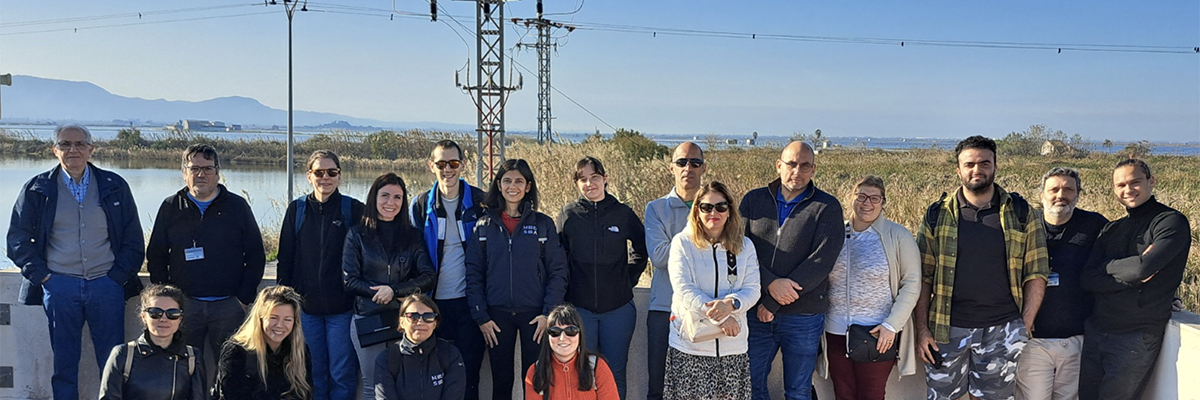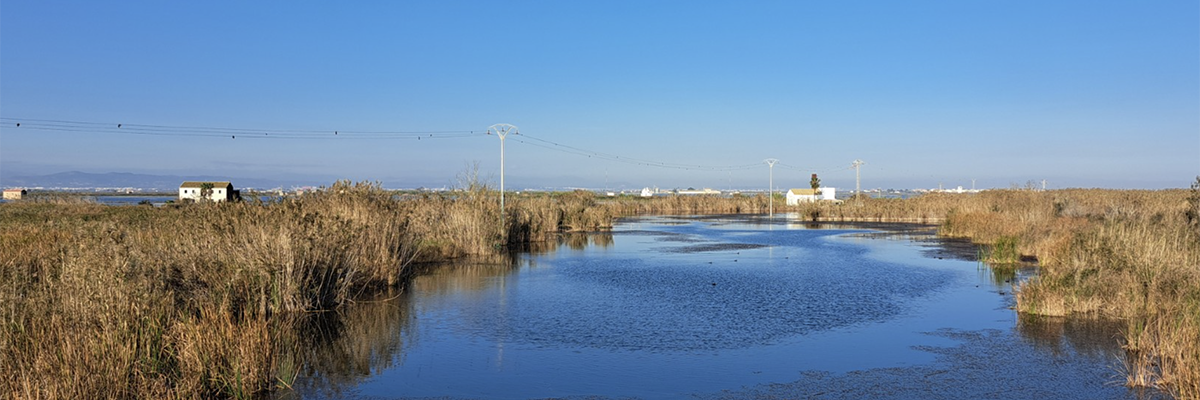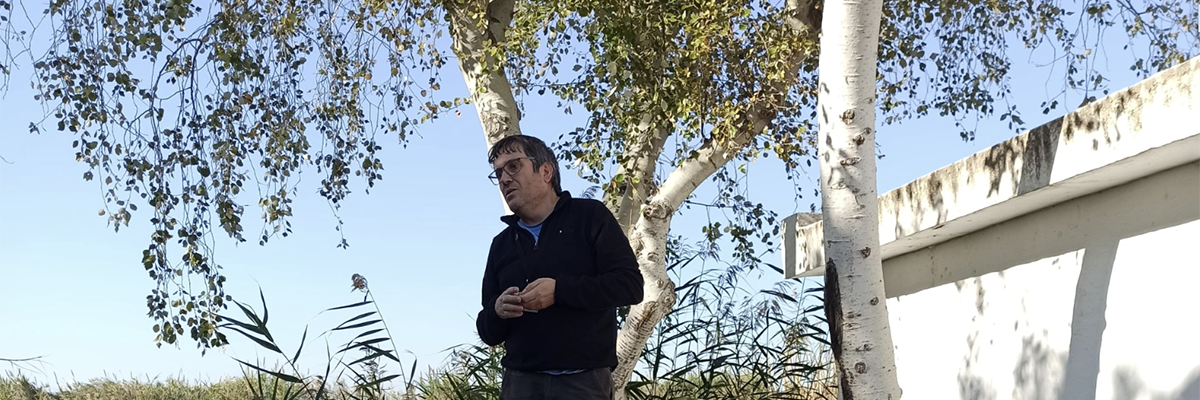The MEDSEA team participated in the second Consortium meeting of the Wetland4Change project in Valencia from November 26 to 28, 2024. The meeting was organized by local project partners, the University of Valencia. The Interreg Euro-MED project aims to validate transferable solutions based on wetland conservation and restoration for climate adaptation and mitigation, promoting the adoption of scientific knowledge and governance mechanisms.
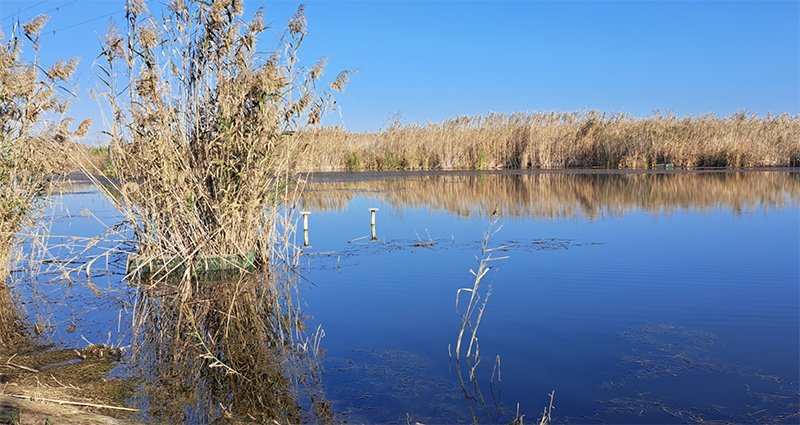
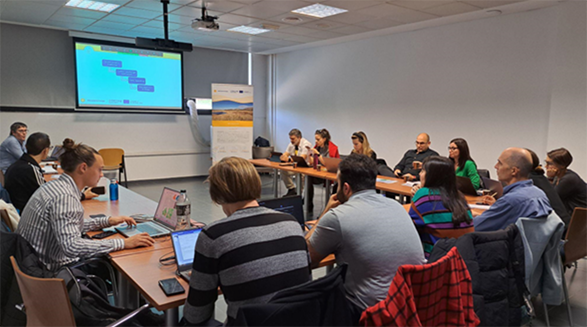
Carles Sanchis, President of the Management Council of Albufera Natural Park, provided a detailed account of the wetland system's condition during the DANA. He reported that “in the area where the storm was most intense, 641 mm of rain fell, equivalent to the annual rainfall in Paris, with 187 mm recorded in just one hour—a record for the entire Iberian Peninsula since precipitation data has been recorded.”
He explained, “The system was not in optimal condition. Structural damages to the water system, primarily due to hypertrophy caused by inefficiencies in the sewer system dating back to the 1960s and '70s, led to significant pollutant influx into the wetlands. As the system was recovering from this severe issue, new problems related to climate change emerged, such as more frequent and intense droughts, intensified storms like the recent DANA, rising sea levels, and increasing salinity in the wetlands. Although the ecosystem can slowly adapt, these changes pose serious threats to local economic activities like rice farming and other crops.”
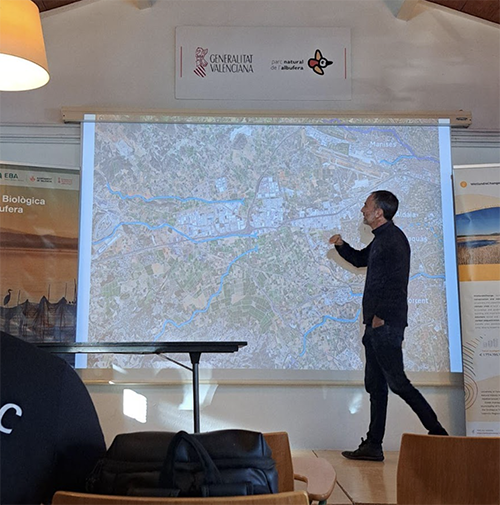
In this context, wetlands represent a possible solution for mitigating the effects of climate change due to their ability to sequester carbon, regulate floods, reduce pollutants, conserve biodiversity, and protect local communities from extreme climate events.
Professor Antonio Camacho, Director of the Limnology Group at the Cavanilles Institute of Biodiversity and Evolutionary Biology and Professor of Ecology at the University of Valencia, emphasized: "Ecosystems, especially aquatic ones, provide essential services for human well-being. The Albufera and its natural context played a crucial role in mitigating the floods caused by the DANA that hit Valencia and the Horta Sud area last month. Thanks to the wetland, the water flow was managed and distributed over a wide area, spreading into the lake and rice fields."
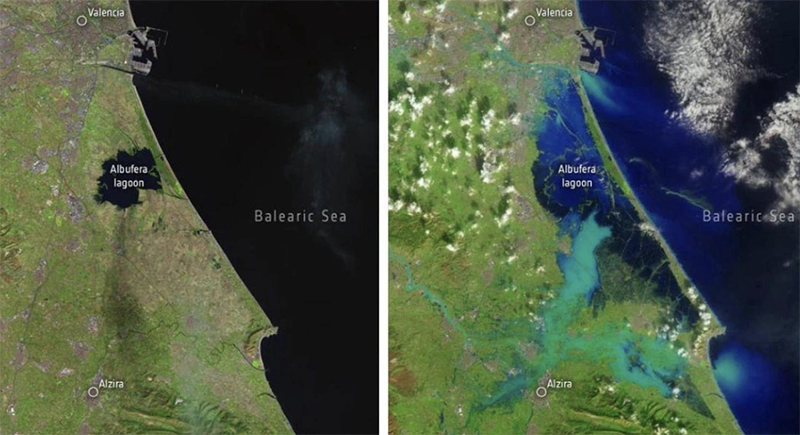
“Wetland4Change promotes the protection and conservation of wetlands through innovative and scientific solutions, guiding natural resource management and governance policies to address climate change. The project aims to enhance adaptation, mitigation, and risk prevention, leveraging the benefits of wetlands, which are essential for climate regulation, water management, flood reduction, and carbon sequestration. At the same time, it strengthens stakeholders’ knowledge and capacities to implement conservation and restoration actions, aligning with local and international priorities.”
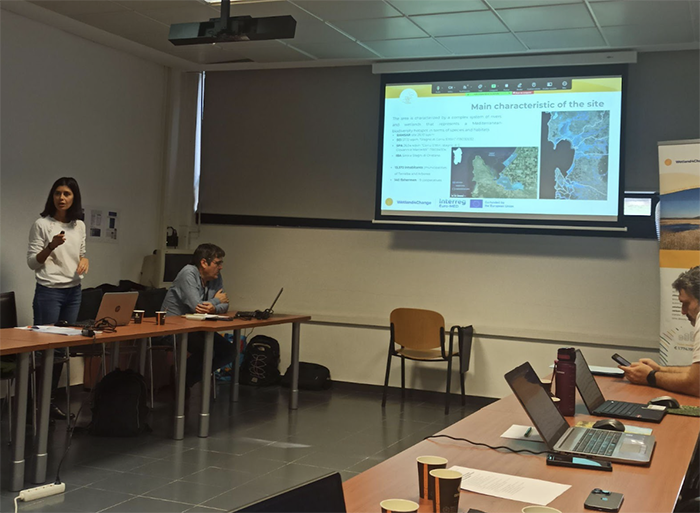
Focus on Carbon Sequestration Capacity
The Albufera Natural Park, one of the five wetlands studied in the Wetland4Change project, alongside sites in France, Italy, Greece, and Bulgaria, was the focus of fieldwork and training activities. On November 27, participants explored the artificial wetlands of Tancat de L’Illa and the Biological Station laboratories of Albufera. Under the guidance of researchers led by Professor Camacho, they delved into greenhouse gas (GHG) measurement techniques across various habitats and learned the key considerations for proper in-situ sampling. Participants also visited the Devesa Sud area, where, between 2003 and 2017, a large-scale renaturalization project restored beach, dune, and back-dune ecosystems.
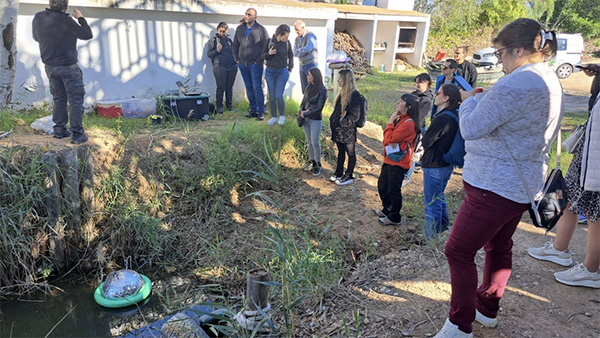
The MEDSEA team presented a mapping of data necessary for calculating carbon sequestration already available for the Marceddì wetland in Terralba, a pilot site where the Foundation will test and validate flood regulation measurement tools. Additionally, they provided updates on the progress of communication activities across the project, managed by the Foundation.
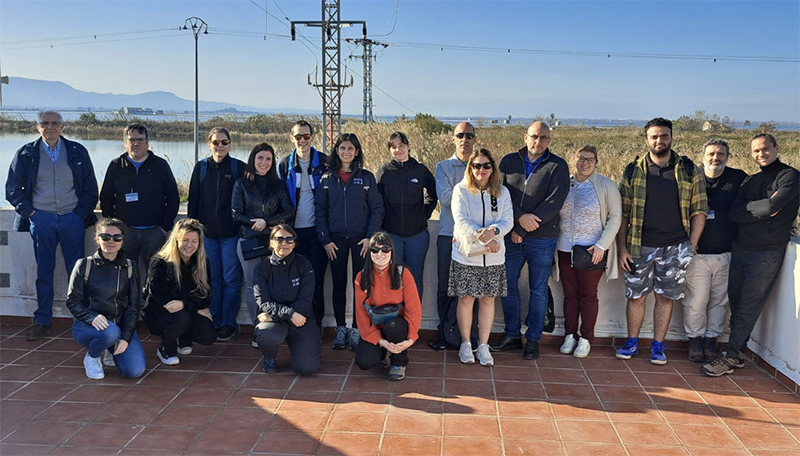
Latest news

ARTEMIS: Marine Reforestation Activities Begin in Northern Sardinia
Marine reforestation efforts under the European Interreg Euro-MED “ARTEMIS” project have officially begun off the northern coast of Sardinia, in Santa Teresa Gallura.

REST-COAST: Strategies for the Protection of European Coasts Outlined in Catania
From March 24 to 27, 2025, the annual meeting of the European project REST-COAST, funded by the Horizon 2020 program, was held in Catania. The meeting marked a key milestone toward the…

A Forest for Bees Takes Root in Sardinia: Restoring Nature, Supporting Pollinators
The planting operations for the first Forest for Bees installation—a forest for bees—have been completed in Sennariolo (OR). This is a special one-hectare forest dedicated to bees and pollinators, essential insects for food…

Altare Hosts RICREA Meeting: Shared Strategies Through Ecological Transition Contracts
The third Steering Committee of the RICREA project – Collaborative Network for the Capitalization of REtrAlags – was held in Altare (Savona). The project is funded by the Italy–France Maritime Interreg Programme.

GRRinPORT2: Innovation and Cross-Border Cooperation for Environmental Protection of Ports
On March 20–21, 2025, the Kickoff Meeting of the GRRinPORT2 project – Management of water, waste, and sediments to reduce pollution in ports – was held at the DESTEC Department of the University of Pisa…

MEDSEA Launches the Wetland4Change Project in Terralba to test and validate climate change's solutions
On Friday, March 14, 2025, in the council chamber of Terralba, MEDSEA held a meeting with the Municipality of Terralba to officially introduce Wetland4Change to stakeholders (productive activities, as well as institutional…

In Crete with ARTEMIS to protect seagrass meadows: 2nd Consortium Meeting
From March 4th to 6th, 2025, Heraklion (Crete) hosted the mid-term meeting of the ARTEMIS Interreg Euro-MED Natural Heritage project, organized by the Hellenic Marine Research Centre. This was a crucial moment to…

MEDSEA Heads to Tallinn for the Blue4All Consortium Meeting
Last January, the Blue4All project team gathered in Tallinn for the Consortium Meeting, marking the project's halfway point. The event, hosted by the local partner Keskkonnaamet/Estonian Environmental Board and the University of Tartu, brought together all 22 project partners from across…

ImPelaghiamoci: A Year of Initiatives to Learn About and Protect Cetaceans with the Municipality of Sassari
Promoting greater knowledge of the resident cetaceans in the Pelagos Sanctuary*, a transboundary marine protected area encompassing France, Liguria, Tuscany, and Sardinia, to improve the protection and conservation of these species…

Reforestation Operations Resume in Montiferru: A Forest for Bees by MEDSEA
Reforestation efforts in Montiferru, led by MEDSEA, are back on track. Following the planting of the first 5 hectares of olive trees, holm oaks, and Mediterranean shrubs, the focus now shifts to melliferous plants to…

25 Events in Sardinia for World Wetlands Day
Wetlands such as ponds, lagoons, lakes, rivers, and peatlands form an endless world of aquatic ecosystems. In Sardinia, the call to explore these habitats is open this February with the Sardinian edition of World Wetlands Day.

COASTRUST: Launching Sustainable Coastal Management in Domus de Maria Sardinia
The activities of the COASTRUST project, funded by the European Interreg Euro-MED program, have officially begun in Sardinia. The initiative aims to promote shared environmental management in the Mediterranean's coastal areas, addressing anthropogenic pressures…

Join the World Wetlands Day Sardinia 2025 Calendar: register your Event by January, 22nd
World Wetlands Day is celebrated every year on February 2, marking the adoption of the Convention on Wetlands signed on February 2, 1971, in Ramsar, on the shores of the…

MEDSEA joins the Camargue Red Alert with the Mediterranean Alliance for Wetlands to save birdlife
The MEDSEA Foundation has officially joined 73 other international organizations in signing the Camargue Red Alert, a collective call to action to safeguard the Camargue wetlands in France.

Wetland4Change: MEDSEA in Valencia to Explore Natural Climate Solutions Through Wetlands
The MEDSEA team participated in the second Consortium meeting of the Wetland4Change project in Valencia from November 26 to 28, 2024. The meeting was organized by local project partners, the…

Malta’s First Posidonia Meadow Restoration Project Led by MEDSEA Foundation
Different islands, but similar issues for marine ecosystems, which are heavily threatened by unregulated anchoring from recreational boating and illegal trawling. In Malta, as in Sardinia, the damage is particularly…
- 1
- 2
- 3
- 4

